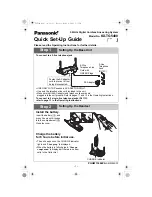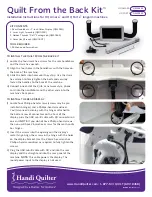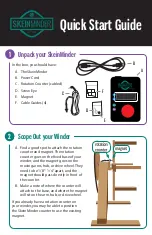
Decorative Stitching
87
3
Fagoting
Stitching across an open seam is called “fagoting”. It
is used on blouses and children's clothing. This stitch
is more decorative when thicker thread is used.
1
Use an iron to fold the two pieces of fabric
along their seams.
2
Baste the two pieces of fabric, separated by
about 4 mm (3/16 inch), onto thin paper or a
sheet of water-soluble stabilizer.
If you draw a line down the middle of the thin
paper or water-soluble stabilizer, sewing is
easier.
1
Thin paper or water soluble stabilizer
2
Basting stitching
3
4 mm (3/16 inch)
3
Attach zigzag foot “J”.
• For details, refer to “Replacing the presser
foot” (page 33).
4
Select stitch
25
or
26
.
• For details, refer to “Selecting stitching”
(page 56).
5
Set the stitch width to 7.0 mm (1/4 inch).
• For details, refer to “Adjusting the stitch
width” (page 47).
6
Sew with the center of the presser foot aligned
along the center of the two pieces of fabric.
7
After sewing is finished, remove the paper.
Ladder
stitch
27
Decorative stitching
4.0
(3/16)
0.0–7.0
(0–1/4)
3.0
(1/8)
2.0–4.0
(1/16–3/16)
J
Rick-rack
stitch
28
4.0
(3/16)
0.0–7.0
(0–1/4)
2.5
(3/32)
1.0–4.0
(1/16–3/16)
Decorative
stitch
29
5.5
(7/32)
0.0–7.0
(0–1/4)
1.6
(1/16)
1.0–4.0
(1/16–3/16)
Serpentine
stitch
30
5.0
(3/16)
1.5–7.0
(1/16–1/4)
1.0
(1/16)
0.2–4.0
(1/64–3/16)
N
Stitch Name Pattern
Application
Stitch Width
[mm (inch)]
Stitch Length
[mm (inch)]
Presser
Foot
Auto
Manual
Auto
Manual
2
1
3
J
Summary of Contents for Crafter's Choice BLCC2
Page 1: ......
Page 56: ...54 SEWING BASICS...
Page 94: ...92 UTILITY STITCHES...
Page 111: ......
Page 112: ......
















































